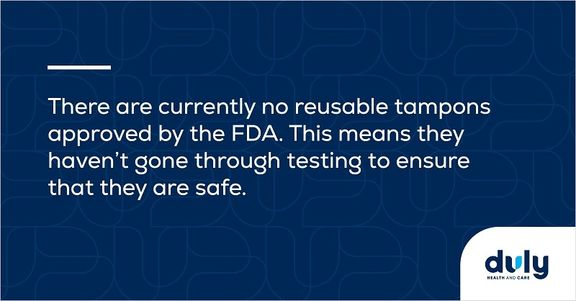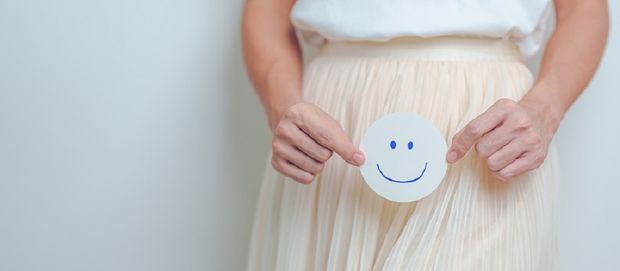Did you know that the average woman spends 3,500 days of her life menstruating?
In the US, that translates to using an average of 10,000 period products throughout their lifetime.
The good news is that after those first few awkward periods, using period products often becomes second nature. You might grab your tampon or pad without a second thought.
But with 10,000 products used throughout your life, it might be worth it to take a step back and think about safety. Many period products are safe – but only if they’re used correctly.
Here’s what you need to know about safe period products and how to best use them.
Get to Know Your Period Products
Depending on the type of product you use, there may be unique safety concerns. Your first step toward staying safe is doing a little background research.
Before you get started, familiarize yourself with the types of products available. Tampons and pads are among the more standard products, but the world of period products is constantly growing. Some options that have gained popularity include:
- Menstrual cups are small, flexible cups that are inserted into your vagina to catch and collect blood. Many are made to be emptied, cleaned, and reused. Cups should be sterilized between periods.
- Menstrual discs are inserted in the space behind your cervix and pubic bone, where they catch and store blood. Like cups, they should be washed between each use and sterilized between periods.
- Period underwear is underwear made of material that absorbs your period blood without leaking.
Also read: Menstrual Cycle Tracking
Be Especially Careful About Products That Go Inside Your Body
Tampons, menstrual cups, and menstrual discs all go directly into your vagina. While going this route can be good news for panty lines, it can be bad news for your health if you don’t use them safely.
One of the most concerning risks is toxic shock syndrome (TSS). TSS occurs when bacteria produce toxins that make their way into your bloodstream. While rare, TSS is critical to prevent. Untreated, it can lead to life-threatening complications like shock or organ failure.
Anything that stays in your vagina for too long can increase your risk of TSS. If you use products like tampons, cups, or discs, pay attention to how long they’ve been in. The FDA recommends changing your tampon every 4 to 8 hours, and not wearing the same one for more than 8 hours to decrease your risk of TSS. They also recommend wearing the lowest absorbency tampon available. Menstrual cups and discs shouldn’t be used for more than 12 hours.
Also read: Guiding You from Puberty to Menopause
You Better Shop Around (For Period Underwear)
One concern that people have about period underwear is that it isn’t sanitary, and that “sitting” in blood can cause health problems.
If you’re thinking about using period underwear, rest assured that they’re generally sanitary. The most important thing is that you wash them properly. If not washing by hand, wash them on their own, rather than in a load with other clothing. Use unscented and dye-free detergent, avoid fabric sheets or softeners, and do an extra rinse cycle to make sure that there isn’t laundry detergent left on them, which could irritate your skin.
When shopping for period underwear, look for a pair that:
- Is made with breathable fabrics, like hemp or cotton. These are less likely to trap moisture, decreasing your risk of a bacterial infection.
- Does not contain silver nanomaterials. Silver nanoparticles are sometimes added to period underwear because they are antibacterial. However, it’s possible that these particles could kill off the healthy bacteria in your vagina.
- Fits well. While not dangerous, underwear that’s too loose can put you at risk for leaks.
Also read: Why is My Period So Painful?
Only Buy Single-Use Tampons
Reusable tampons can be either cloth or crocheted. The idea is that the materials allow you to wash them, reducing waste from disposable tampons. But while reusable tampons are a well-intentioned attempt to be environmentally friendly, they’re not friendly for your body.
There are a few reasons to avoid reusable tampons:
- They increase your risk for fungal, bacterial, or yeast infections.
- They may put you at a higher risk for TSS.
- Certain ones (especially crocheted ones) are more difficult to thoroughly wash, meaning bacteria can get stuck in them.

Look Out For Per- and Polyfluoroalkyl Substances (PFAS)
PFAS, also known as “forever chemicals,” are compounds that are stick‑, stain‑, and water-resistant. This makes them ideal for products like pads or period underwear, but there are some downsides to them. Since the chemicals are very difficult to break down, they can accumulate in your blood or organs. Eventually, this buildup could lead to problems with your immune system, high cholesterol, and even an increased risk of cancer.
We’re exposed to PFAS constantly. They’re often found in drinking water, carpeting, or cleaning products. However, unlike these products, period products are made for extended contact with your genitals and skin. This exposure makes researchers more concerned than they are about PFAS in consumer products.
Recent research has been a bit alarming for people who are concerned about PFAS. Analysis of several studies has shown that 22% of tampons, 48% of pads and panty liners, and 65% of period underwear contain PFAS.
It’s not always easy to avoid PFAS, especially since there are more than 12,000 types. However, you can check out sites, like Better Goods and Mamavation, that have researched and ranked some of the best products for staying PFAS-free.
Also, be wary if a product is only labeled “PFOA-free.” PFOA is just one type of PFAS, so a product that only specifies PFOA may still have other harmful chemicals.
Ask Questions
With so many period products, and with new ones constantly hitting the market, deciding on the best one or knowing how to use them safely can get a little confusing. Don’t hesitate to reach out to your provider if you have any questions. And if talking about it makes you feel awkward, remember that there’s nothing to be embarrassed about. Your provider is there for you – period.
Questions about period products? Schedule an appointment with a Duly Health and Care OBGYN to discuss the best options.
Health Topics:





